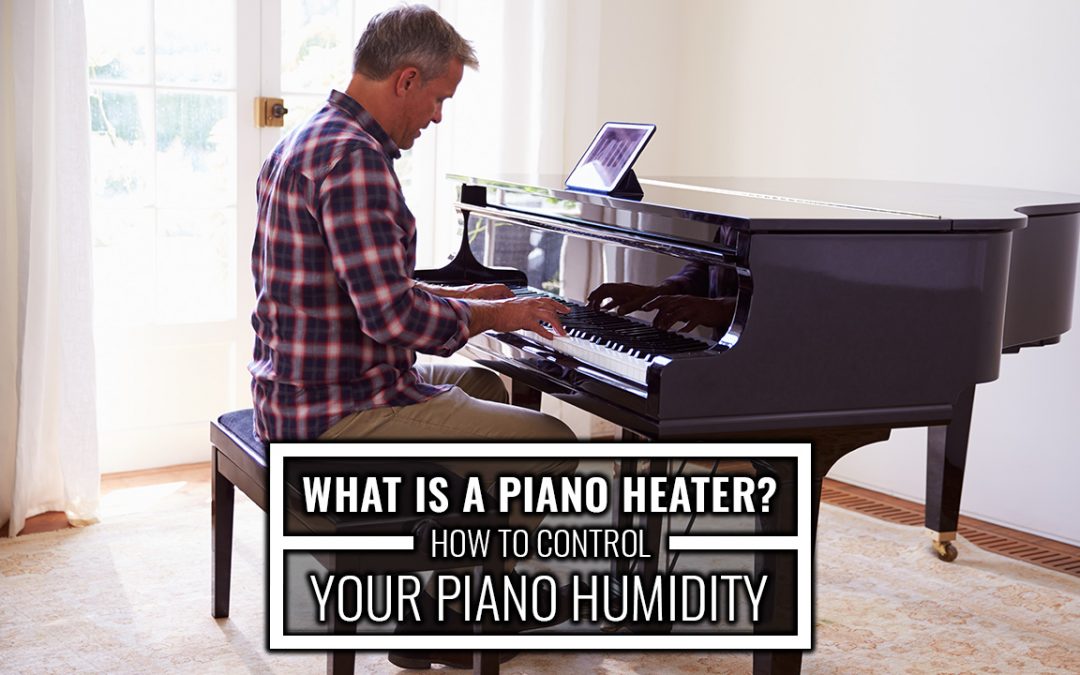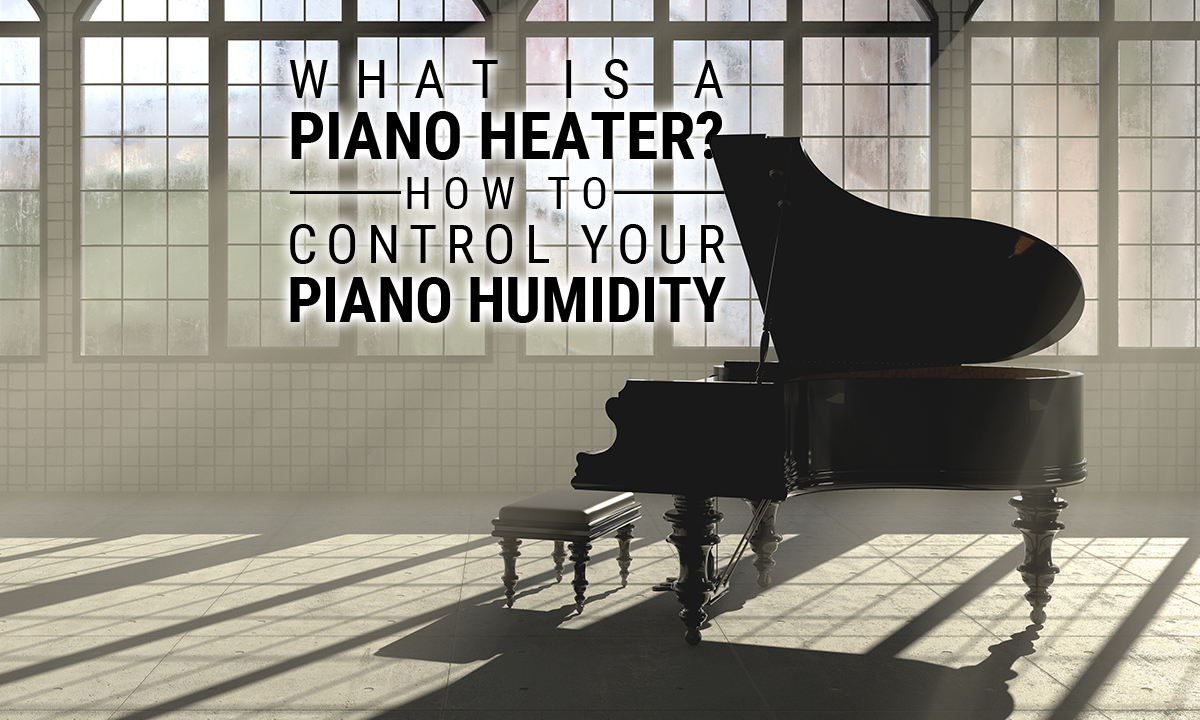Pianos are sensitive instruments, but with proper care and steady conditions a piano can last for generations on just regular maintenance. Unfortunately, the biggest threat to a piano’s integrity is unstable environmental conditions, which if drastic enough can seriously damage its fine and precise inner workings.
This is where piano heaters come to the rescue!
What is a Piano Heater?
A piano heater is a long, metal heating rod that can be installed in the base of an upright piano or behind the keys on a grand piano.
The piano heater bar should be installed about 6-12 inches above the foot pedals, under the action. This positioning ensures effective distribution of heat, allowing the warm, dry air to rise into the piano’s cavity, which in turn protects the instrument’s sensitive wooden components from humidity and temperature fluctuations.
What Does a Piano Heater Do?
A piano heater’s purpose is to protect your piano from fluctuating humidity levels, which can dramatically affect your piano’s sound quality and lifespan.
Because of this, it is important to keep a close eye on the conditions in your house, specifically the piano room. If you have a steady and reliable HVAC system installed, you won’t have to worry about these variations.
On the other hand, if you don’t have a good HVAC system, a good piano heater bar will help keep piano humidity at an acceptable level while preventing major condensation from forming.
Maintaining an acceptable environment around your piano is imperative to maintaining your piano’s health and tuning stability.
Is it Really That Big of a Deal?
Without piano humidity control, such a meticulously crafted instrument can easily fall out of tune.
This is mainly because the soundboard—the wooden plate that amplifies the sounds created by the strings—is made of softwood spruce, which is chosen for its unique ability to provide superior sound quality and excellent sustain. However, since the soundboard is built to have a very precise shape and crown, drastic humidity and temperature changes can cause the soundboard to warp or lose its structure.
Proper Humidity Control for Pianos
The ideal piano humidity range is 45-55%.
If you have a piano and you are worried about the conditions of the room or house it is in, we highly recommend installing a piano humidity control system.
Think Bigger
Piano heaters can be real lifesavers as they can provide protection against small environmental changes, but they are not perfect.
Unfortunately, since heater bars are small, they are not able to effectively distribute heat to the rest of the piano, which can be risky in conditions that are especially poor. If your house experiences huge swings in temperature and humidity, a piano heater won’t protect it completely.
If possible, we recommend that you keep your piano in a room that has a relatively stable humidity range of 45-55%—stay within a 10% range for best results. If your piano is located in an environment that regularly sees humidity below 30% or above 70%, a piano heater should not be your only defense.
Dehumidifiers and Pianos
Some suggest that using a piano heater or two will be enough to offset climate variation in a closed room, but that is highly unlikely. Heating bars are not very large and not especially effective at a distance.
Ultimately piano heaters are great for dealing with minimal climate variation, but anything more extreme will require an investment in higher capacity devices like an AC unit and a dehumidifier.
If you are particularly worried about your space, we recommend using a hygrometer to accurately monitor the humidity levels within your home—you can even hook your system up to a sensor for hands-off heater operation!
Safe Storage Options
So let’s say you have a piano in a house that has ideal humidity and temperature levels, but you are traveling for a while and don’t want to heat an empty house. What do you do?
You can either manually move it to a friend’s house or hire the experts! Just whatever you do, don’t store it in your garage!
West Coast Piano Moving and Storage
At West Coast Piano we offer a safe and secure, climate-controlled storage facility at our warehouse in Portland, Oregon.
We can fit a maximum of 400 pianos at one time while still leaving adequate space between them. To prevent scratches and chips, our dedicated staff of experts wraps each piano in pads and carefully straps it together before storing it in our facility. Every part of your piano—such as benches and other accessories—is labeled and kept together for a convenient and easy retrieval.
We offer competitive monthly pricing for all piano styles, the main difference being whether your piano is a grand or an upright. You can store your piano with us for however long you need—when you want to retrieve it, all you have to do is call us up and schedule a delivery date!
If you have any questions or concerns regarding piano moving, storage or care, feel free to contact us for more information.



Thank you for mentioning how you need to control your piano’s humidity properly since its soundboard can become distorted since it is made out of wood. I remember my brother mentioning how he wanted to play a song on his piano for his wife’s birthday, but he has noticed that it has been out of tune ever since he installed an air conditioner in his living room. Maybe he should find a piano tuning service to help him ensure that his piano can be played properly.